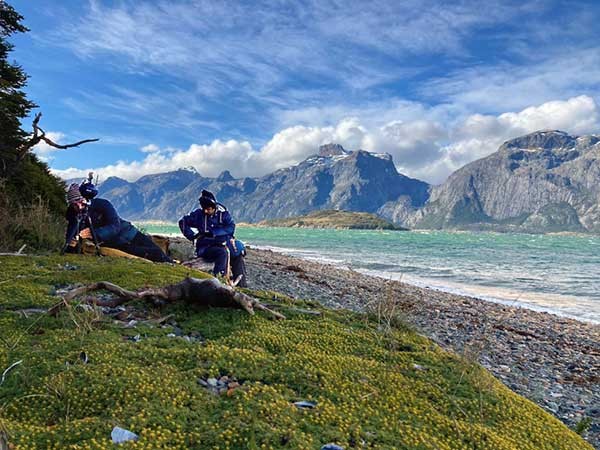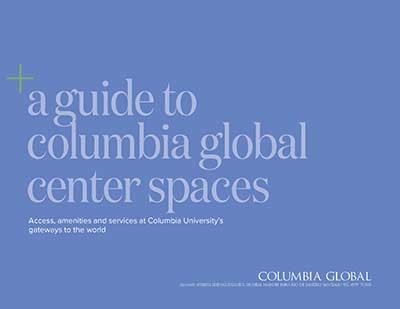
Below is a sampling of the ways faculty can engage with Columbia Global Centers.
Research
Each Center serves as a regional hub for research and collaboration as part of the University’s strategy to achieve a global presence and bring Columbia’s scientific rigor, technological innovation and academic leadership to the world and vice versa. Columbia faculty can use the Centers as a base from which to conduct research around the globe. Read more about research projects at each center.
The Mumbai Center partners with Columbia's Mailman School of Public Health to offer the Yusuf Hamied Fellowships, which are awarded annually for three research residencies in India to public health faculty at the Mailman School and to three faculty members in Indian educational institutions for short-term residencies at the Mailman School.
Funding
Several funding opportunities exist to support Columbia faculty and researchers to develop projects and research collaborations through the 11 Global Centers.
To encourage and support research at the Global Centers, the President’s Global Innovation Fund was established in 2013 to support Columbia faculty and researchers who utilize the Global Centers as a resource for teaching and research activities.
In addition, Columbia Global has four other unique opportunities for faculty to secure support and funding for scholarly research and projects that address complex global challenges.
- Early Career Impact Fellowship: Empower early-career faculty to apply research for social good. Features workshops, grants, and seed funding to drive impact
- 2024 Columbia World Projects Impact Awards: For university faculty and researchers contributing to community resilience and well-being across diverse disciplines.
- Columbia Global Resilience Fund: Funds projects that harness knowledge for crisis response and reconstruction. Currently funds faculty proposals for mid- and long-term earthquake relief efforts in Turkey.
- Center for Political Economy Faculty Grants: Provide funding to generate new knowledge, new networks, accelerate the identification of key challenges relating to Firms and Industrial Policy, Work and Labor, and Money and Finance.
Visit a center, share your expertise
Creating an accessible space for global education is a priority for Columbia University and the Columbia Global Centers. The Centers can serve a venue for faculty to teach courses and present research formally and informally. In addition, the centers host events, such forums, panels, training workshops, seminars and conferences where participants exchange ideas with a focus on regional and global impact. Each center provides access to a wide variety of spaces. See more information in the Guide to Columbia Global Center Spaces.
Columbia University faculty and researchers are encouraged to apply to the Faculty Visitorship Program at Reid Hall, jointly supported by the Paris Global Center and the Institute for Ideas and Imagination. Visitors are invited to stay for one to three weeks. During their stay, they are also encouraged to participate in an Atelier podcast episode or public event or participate in the Institute's Library Chats series.
Join the Committee on Forced Migration
The Committee on Forced Migration was created by the Columbia Global Centers as a response to the dramatic increase in the number of forced migrants and migration crises around the world. The Committee seeks to maximize Columbia’s ability to act as a platform to engage, support and share information across its community of faculty, students and staff on issues related to forced migration. Through workshops, research and broad communications with academic experts and the world’s thought leaders in global migration, the Committee provides an institutional setting for over 80 faculty from across Columbia’s schools and affiliates to share research results, create interdisciplinary networks, and explore new approaches to addressing problems of forced migration.
